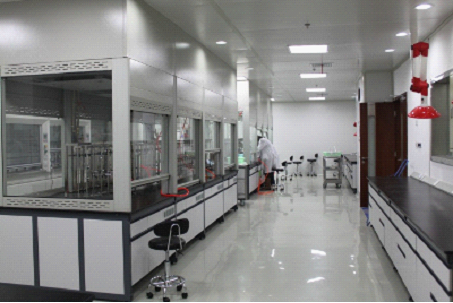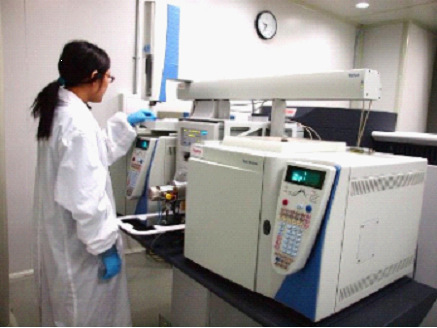News Update
China is facing challenges in the monitoring data and testing organizations in terms of dioxin emission and pollution research. Therefore, it is of great importance to conduct the monitoring and detection of dioxin. At the moment, there is still a big demand domestically in terms of dioxin monitoring techniques and standards, and the one-time investment to the advanced dioxin ultra trace analysis testing equipment requires a big amount of money and professional analysis skills. For this reason, Shanghai Advanced Research Institute of Chinese Academy of Sciences (SARI-CAS) partnered with Taiwan Chungyu Ultra-Trace Dioxin Analysis Lab to carry out the construction of SARI-CAS’s Dioxin Testing Lab.

Through 9 months preparation, Shanghai’s first international standard compliant lab, the Ultra-Trace Dioxin and Dibenzofuran Analysis Lab was founded at Shanghai Advanced Research Institute, Chinese Academy of Sciences. The lab is equipped with advanced HRGC/HRMS from Germany and quite some relevant sample pre-treatment corollary equipment. The analysis cycle for dioxin samples can be shortened 3 to 7 days, far less than the common 21 days analysis cycle internationally. Starting from the very beginning, the lab strictly followed the regulations and requirements of national laws and national lab qualifications. With the training of metrology accreditation, the lab has established a young technical team with high level of dioxin analysis knowledge.
Currently, the Ultra-Trace Dioxin and Dibenzofuran Analysis Lab is already open to the outside, and has received the first analysis assignment with the samples from the industry, and the national metrology accreditation qualification certification is under application. The set-up of the lab will provide quick, accurate and reliable scientific data regarding the analysis and detection of dioxin in the solid waste combustion in Shanghai and other domestic areas, steel industry, non-ferrousmetal refinery industry, air and soil, food, and chemicals.






